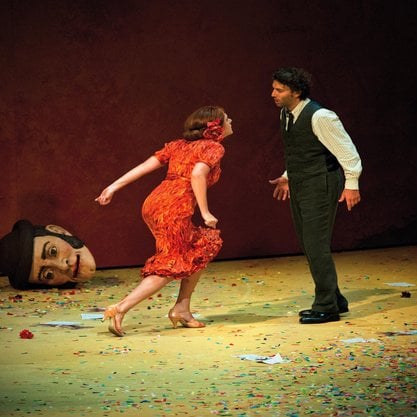Article
Directors/Directing By Switzky, Lawrence
Article
Although some official has organized the acting and scenery in theatrical performances since ancient Greece, the director only emerged as a significant creative figure in the late nineteenth century. Directors introduced innovative acting methods, modernized staging through new technologies such as electric light and mechanized scenery, proposed theories about the function of the theater in social and political life, and provided unified interpretations of complex plays. As the self-designated authors of productions, directors often competed with playwrights and actors for artistic control, a tension that continues to characterize the division of labor in theaters.
